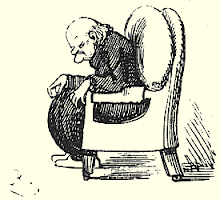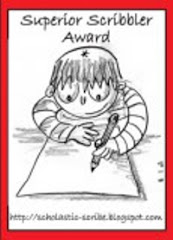I like Brooks Brothers.
I do. I really, really do.
I own three Brooks Brothers shirts. Two, I bought from thrift stores for a grand total of $22, and one was purchased for me, at full price, by my in-laws. It has an eyelet collar (that's a hole through each collar, through which a solid gold tie-bar (they also bought that for me) goes through and fastens behind your necktie's knot. I can't even imagine how much that shirt cost. I don't want to imagine it, but I sometimes find myself imagining about it.
Against my will, of course.
According to Facebook, which is never wrong about anything except that one thing someone I didn't go to middle school with said once about Tina Fey that time, Brooks Brothers is "the official men's clothier for The Great Gatsby".
What the fuck does this mean? I genteelly asked myself, in that Great Gatsbian way of mine. Google, which is also never wrong about anything except for that one time someone Googled "donkey porn electrified cum twin badgers" and got to My Masonic Apron, informed me that Brooks Brothers teamed up with costume designer Catherine Martin to design over 500 costume pieces for Baz Luhrman's film interpretation of F. Scott Fitzgerald's "The Great Gatsby", starring Leonardo DiCaprio as Jay Gatsby and Toby Maguire as that other asshole whose name doesn't matter. I'm guessing that ready-to-wear versions of these costume pieces will be/are available for wealthier-than-average Republican motorcar aficionados and parlour games enthusiasts at nationwide Brooks Brothers retail establishments.
I don't recall much literature I read in high school for required reading. I don't remember much of the literature I read in high school for the other kind of reading either-- what was it called? Where the student gets to pick the book? Voluntary? Secessionist? I forget. It's far easier for me to remember middle school. There was a story in the obligatory Houghton Mifflin Reader about an Eskimo dog whose heart explodes while he's doing something heroic. Or something. I remember distinctly reading about an explorer who, along with his crew, froze to death while searching in vain for the Northwest Passage, and I didn't sleep for two months thereafter. I remember in 6th grade, I chose to read "Death Be Not Proud", which was sitting there on the shelf (right where it had no business being) and its morbid back cover synopsis, the tale of a young boy in the 1940s being diagnosed with terminal brain cancer and dies at 17, of course called out to morbidly-obsessed 12-year-old me seductively.
I remember reading Graham Chapman's "A Liar's Autobiography" the following year, in 7th grade. Actually, I didn't read it, I listened to it on several tape cassettes, because the book was out-of-print. How I managed to score the tapes, who knows? I recall being fascinated by Chapman's vivid and frank discussions of his alcoholism and his homosexuality, and the moment he realized he was gay. He was in medical school and was having sex with a nurse, or a nursing student, I forget. He said that he had the epiphany that he was attracted to men "as I came between her breasts for the third time".
I did a long book report on "A Liar's Autobiography" and Miss Stein, a newly-minted year-long substitute, gave me an A, and couldn't look me in the eye when she passed the graded report back to me. There were no comments and, fortunately, no phone calls home.
In high school, I know I read "The Crucible", and I appeared in it onstage, too. That was a mistake. So was the time I appeared in it in college. I hope to not make that mistake a third time. I read "Major Molineux" which, apparently, is actually called "My Kinsman, Major Molineux", but who cares? I also read "The Scarlet Letter" which is by Hawthorne, too, and it was hot-- much hotter than Major Molineux. I read a short story by James Joyce in eleventh grade, but I couldn't tell you what it was called. There was "The Grapes of Wrath" and "The Great Gatsby", too. But I didn't find either very wrathful or great.
Maybe that's because I'm a phony bastard.
I fell in love with "The Catcher in the Rye" the same way every depressed, repressed, neurotic, sardonic scowling and howling boy of sixteen or whatever does, and I'm embarrassed to be such an ardent cliche, but then, I'm also a Jew with a big nose, too, so what can you do? I could sit here and write all day about it, but then you'd probably start to get worried about me. But then, maybe you wouldn't even notice. People never notice anything.
I'm kind of surprised Brooks Brothers didn't release a line of clothing inspired by late 19th century garb after the movie "Lincoln" was released. Throwbacks. Vintage. Silk top-hats with grosgrain ribbons for everyone. I learned yesterday listening to a radio interview with Julian Fellows, the creator of "Downton Abbey" that, in the 1950s, they briefly brought back the corseted, crinoline clothes of the 1880s, only to abruptly halt making them, because even rich people in the 1950s didn't have valets or maids to help them button seven thousand buttons the side of a baby's pinkie fingernail. People have to get dressed themselves now, like big boys and girls. I put on a pair of spats for a gig last month, and I almost broke my ankle, my wrist, and fell off the bed. I was just pretending. When I wear my Brooks Brothers shirts, especially the one with the eyelet collar, I'm just pretending. I'm a marvelous pretender.
I guess what I really want to say about all of this is I'm very jealous of people who get to shop at Brooks Brothers, you know, regularly. Like, when I say I'm going to "the store to get some clothes", I'm talking about a thrift store, typically, or Kohls. I know there are people out there who say they're going "the store to get some clothes" and they're talking about Brooks Brothers, and I hate people who say that. I hate people who say they loved "The Great Gatsby", because they didn't. They'll sure like wearing the clothes, though.
I know they will.
Lauren Soloy’s The Newest Gnome: A Quiet Adventure
5 months ago













